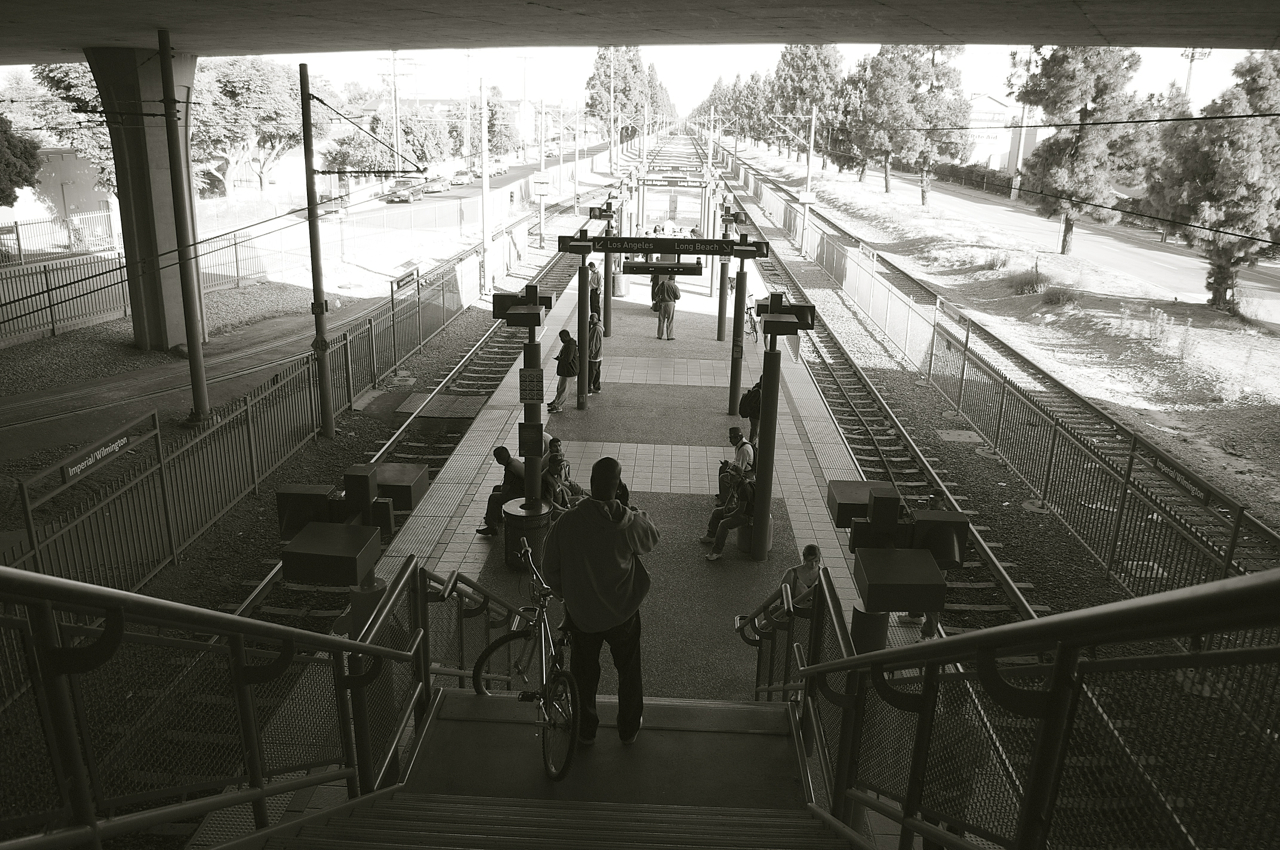In November of 2016, the Labor/Community Strategy Center (LCSC) filed a civil rights complaint against Metro with the federal departments of Transportation and Justice. LCSC is the parent organization of the Bus Riders Union, and now the Fight for the Soul of the Cities (FFSC) campaign. The LCSC/FFSC complaint alleges that Metro has created a discriminatory system of policing that disproportionately impacts black transit riders, and that this system of criminalization of black riders constitutes a violation of civil rights. LCSC/FFSC is urging greater accountability from both Metro and the L.A. County Sheriff's Department (LASD), which policies Metro buses and trains.
The federal departments have acknowledged receipt of the LCSC/FFSC complaint and have requested that Metro respond to the allegations.
Among the discriminatory results that the LCSC/FFSC complaint cites are:
- Blacks are 19 percent of rail riders but make up nearly 50 percent of Metro citations and nearly 60 percent of LASD arrests each year.
- From 2012 and through May 2016, Metro and LASD combined have issued close to a half a million citations at 455,388. Of this total, black riders made up at least 48 percent of those cited.
- From 2012 to 2015, black riders received over 50 percent of fare evasion citations while white riders received 9-10 percent of fare evasion citations. Black constitute 19 percent of rail ridership, while whites constitute 13 percent.
To remedy the alleged discriminatory practices, LCSC/FFSC are demanding significant changes to Metro and LASD practices including:
- Free public transit
- Ending ‘stop-and-frisk’ fare enforcement by withdrawing police from trains and buses
- Reparations for past discrimination, including granting amnesty for outstanding Metro transit citations
- Freezing all federal funds to Metro pending successful implementation of remedial actions
LCSC Director Eric Mann stressed the importance of building a civil rights movement to end numerous institutional practices that criminalize black people occupying public spaces. FFSC's Community Rights Campaign successfully fought to reign in truancy criminalization practices employed by the L.A. Unified School District. Now FFSC is targeting similar practices at Metro.
Metro is currently in negotiations for a new policing contract. Though the agency may assign LASD transit policing duties to others, overall decriminalization (something some transit agencies are moving towards, especially in moving away from fare enforcement) has not been a significant part of the current discussions.
On the face of them, the citation figures are very damning. Public transit that should be welcoming to all is not welcoming to African Americans. The results of Metro's policing system show that there is a need for significant reforms, and more measured consideration of how to balance monitoring the system with potential harms caused by that effort.
It is unclear how seriously federal agencies (about to undergo a change of presidential leadership) and Metro will take the LCSC/FFSC complaint. The LCSC/FFSC folks, though, based on their past, appear unlikely to back down from a just fight.






